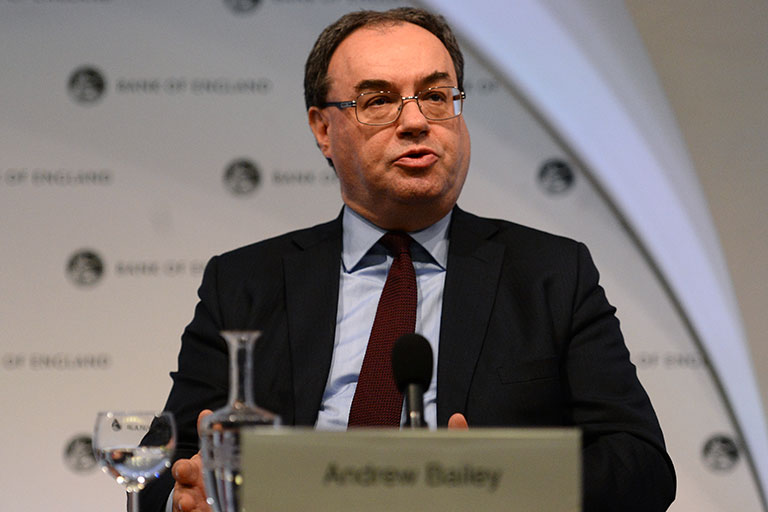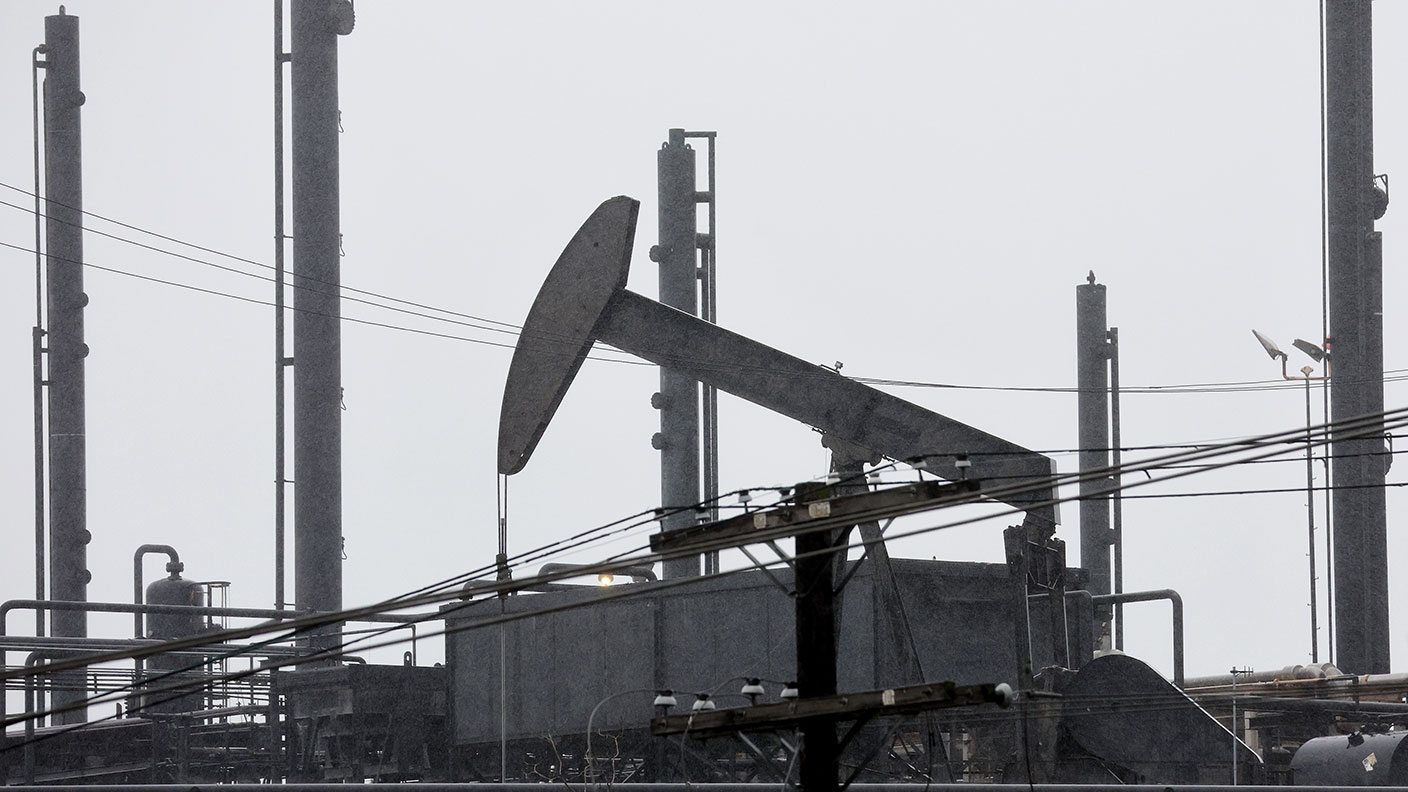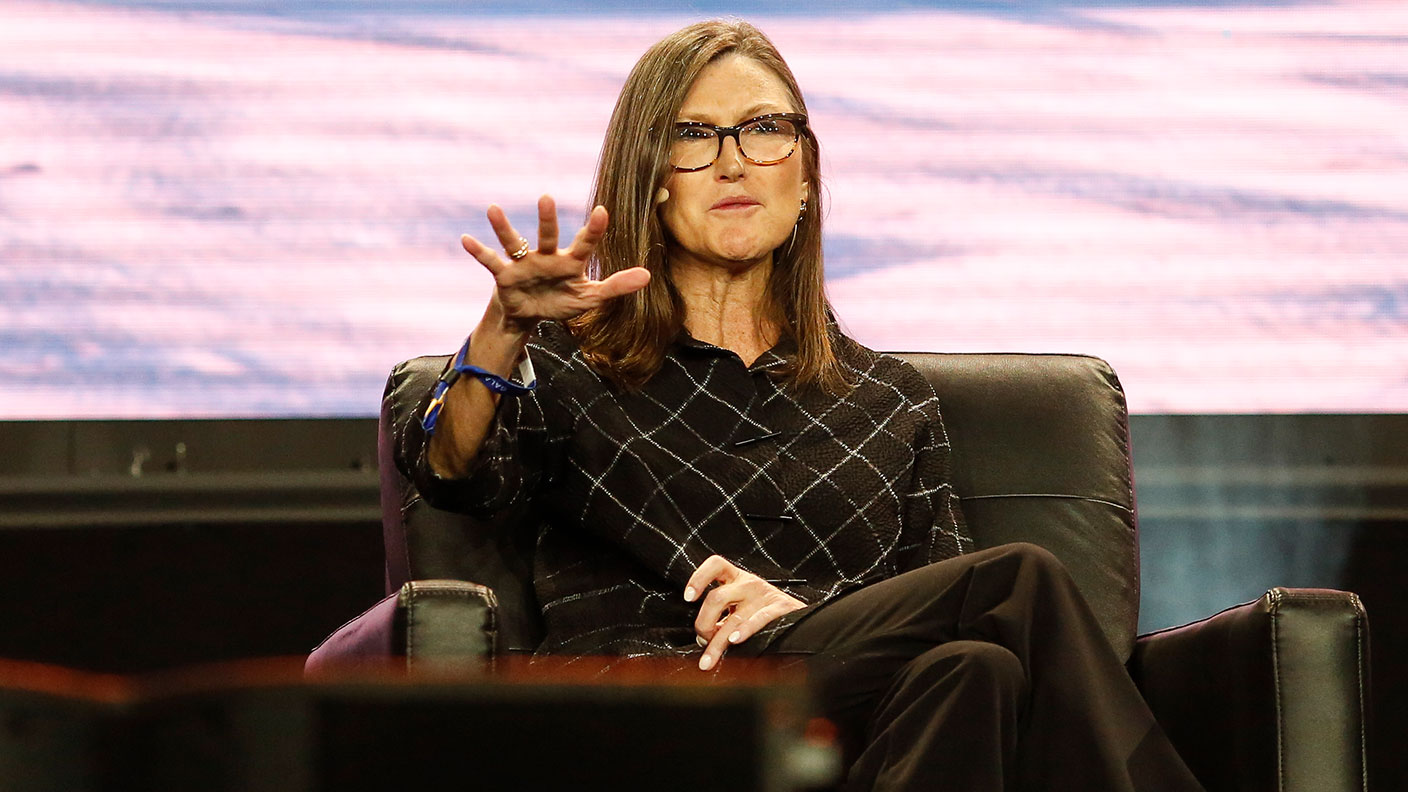Here’s what really matters for markets in 2020
The current geopolitical turmoil is making headlines. But it isn’t particularly significant for investors, says John Stepek. What matters more is how accommodating central banks plan to be.


Get the latest financial news, insights and expert analysis from our award-winning MoneyWeek team, to help you understand what really matters when it comes to your finances.
You are now subscribed
Your newsletter sign-up was successful
Want to add more newsletters?

Twice daily
MoneyWeek
Get the latest financial news, insights and expert analysis from our award-winning MoneyWeek team, to help you understand what really matters when it comes to your finances.

Four times a week
Look After My Bills
Sign up to our free money-saving newsletter, filled with the latest news and expert advice to help you find the best tips and deals for managing your bills. Start saving today!
I’ve spent a lot of this week pointing out that the conflict between the US and Iran is scary, but probably not that important for markets.So if geopolitical turmoil isn’t particularly significant for investors, what is? If tidings of war and promises of strife don’t matter, then what does? I hate to say it, but it’s the same old, same old – it’s all about how accommodating central banks plan to be.
You’ll often hear that central banks are “out of ammo” or that their effect on markets is overstated. Neither is true. Forget the “zero bound” – you can always make monetary policy looser. You just print it. And as long as you can get it out there – and central banks can – then it’ll go somewhere. It may or may not do much for the underlying economy. But when it comes to markets, as Eoin Treacy of FullerMoney puts it: “The simple fact is monetary policy beats most other factors most of the time.” So given that they’re so important, the question for investors is: what are central banks planning this year?
Let’s start in the UK. Andrew Bailey takes over from Mark Carney as governor of the Bank of England in March. What can we say about Bailey? He understands financial regulation, which will be handy during the Brexit talks. And he will hopefully be less “starry” than Carney.
MoneyWeek
Subscribe to MoneyWeek today and get your first six magazine issues absolutely FREE

Sign up to Money Morning
Don't miss the latest investment and personal finances news, market analysis, plus money-saving tips with our free twice-daily newsletter
Don't miss the latest investment and personal finances news, market analysis, plus money-saving tips with our free twice-daily newsletter
As for monetary policy – typically, the Bank of England takes its cue from the US. Yesterday, for example, Carney suggested that the Bank could commit to keeping rates low until inflation is clearly remaining around target – a so-called “lower for longer” strategy. He noted that there is still room to cut rates if needs be.
You might think he just wanted to give sterling another few kicks before he heads out of the door. But he’s really just echoing the general line of the Federal Reserve, America’s central bank. In all, it’s hard to see the UK’s central bank springing many surprises this year. And that’s no bad thing.
Look out for bank mergers in the eurozone
The European Central Bank (ECB) is more interesting. All central banks are political entities, of course, but the ECB is about to become much more overtly political.
The previous incumbent, Mario Draghi, lashed the eurozone together, over the misgivings of the Germans, with sticky tape and quantitative easing. It’s Christine Lagarde’s job to make that permanent.
The purpose of the euro was to make ever-closer union an inevitability. One benefit of Brexit for those who are in favour of a much closer union is that they now feel able to be much more explicit about that.
How might that manifest in monetary policy? Well, the whole point is that Lagarde probably won’t have to do much on that front, certainly not this year. Draghi set the ECB to auto-print before he left. Unless inflation in the region rockets for some reason, Lagarde can justify leaving it there.
She’ll continue to press national governments to spend more, dangling the carrot of ECB money-printing to underwrite spending on “green” tech. But what’ll be more interesting is to watch what happens in the eurozone banking sector this year. If progress is being made towards ever-closer union, that’s where it’ll start – with a load of mergers.
The policy response from Asia
What about the Bank of Japan? It hasn’t drawn much attention to itself in recent months. However, one point worth noting is that Japanese ten-year bond yields have quietly crept into (barely) positive territory in the last few weeks. The Bank of Japan will probably be quite happy about that – it wants a steeper yield curve, which is healthier for the banking sector.
As for China’s central bank – an increasingly important player – signs are that after tightening up in recent years (to impose a bit of discipline on lenders and borrowers), the People’s Bank of China is loosening monetary policy again. That will be cheered by markets.
The daddy of them all
Finally, the Fed. Ultimately the Fed is the one that matters. One reason that markets have been so exuberant over the Christmas period is that the Fed has not only backed away entirely from the idea of raising rates, but it is also injecting funds into the system to prevent liquidity from seizing up.
This isn’t quantitative easing (and I don’t think this is just semantics, it’s genuinely different). But it is keeping things ticking over and also reassuring all market participants that the central bank has their back.
The main problem for the Fed is that the US is irresistible. Everyone wants a piece of it, and that makes it hard to drive the dollar down, which to a great extent, is the key to getting a proper wild boom going.
Of course, the Fed probably shouldn’t be trying to spike the punch bowl right at this point in the cycle. But it is election year, so we know who’ll be jogging their elbows at every chance he gets.
In short, central banks are all in loosening mode. None of them is remotely concerned about a global economy that’s running at close to full employment, and they’re all apparently willing to ignore inflation until it’s firmly embedded in the system.
Given that, it’s difficult to be bearish overall. I’m sure I’ll find reasons to do so, and I’ll still favour cheap markets over expensive ones. But at the risk of repeating myself, the fundamental issue is this – until inflation takes off, there’s no reason for central banks to step back. And for as long as that’s the case, it’s hard to see why asset prices would collapse.
Get the latest financial news, insights and expert analysis from our award-winning MoneyWeek team, to help you understand what really matters when it comes to your finances.

-
 Should you buy an active ETF?
Should you buy an active ETF?ETFs are often mischaracterised as passive products, but they can be a convenient way to add active management to your portfolio
-
 Power up your pension before 5 April – easy ways to save before the tax year end
Power up your pension before 5 April – easy ways to save before the tax year endWith the end of the tax year looming, pension savers currently have a window to review and maximise what’s going into their retirement funds – we look at how
-
 Are UK house prices set to fall? It’s not so simple
Are UK house prices set to fall? It’s not so simpleAnalysis Figures suggest UK house prices are starting to slide, but we shouldn’t take these numbers at face value, explains Rupert Hargreaves.
-
 Tesco looks well-placed to ride out the cost of living crisis – investors take note
Tesco looks well-placed to ride out the cost of living crisis – investors take noteAnalysis Surging inflation is bad news for retailers. But supermarket giant Tesco looks better placed to cope than most, says Rupert Hargreaves.
-
 It may not look like it, but the UK housing market is cooling off
It may not look like it, but the UK housing market is cooling offAnalysis Recent house price statistics show UK house prices rising. But John Stepek explains why the market is in fact slowing down and what this means for you.
-
 Think the oil price is high now? You ain’t seen nothing yet
Think the oil price is high now? You ain’t seen nothing yetAnalysis The oil price has been on a tear in recent months. Dominic Frisby explains why oil in fact is still very cheap relative to other assets.
-
 What can markets tell us about the economy and geopolitics?
What can markets tell us about the economy and geopolitics?Sponsored Markets have remained resilient despite Russia's war with Ukraine. Max King rounds up how reliable the stockmarket is in predicting economic outlooks.
-
 The tech bubble has burst – but I still want a Peloton
The tech bubble has burst – but I still want a PelotonAnalysis Peloton was one of the big winners from the Covid tech boom. But it's fallen over 90% as the tech stock bubble bursts and and everything else falls in tandem. Here, Dominic Frisby explains where to hide as markets crash.
-
 The market is adjusting to a new “short dreams, long reality” world
The market is adjusting to a new “short dreams, long reality” worldAnalysis As interest rates rise, things are starting to change, says John Stepek. Reality is biting back. Gone are the fanciful ideas built on hope – a business now needs a solid foundation.
-
 Are UK house prices heading for a fall?
Are UK house prices heading for a fall?Analysis UK house-price growth is slowing as interest rates rise. But interest rates aren’t all that matters for house prices, says John Stepek.